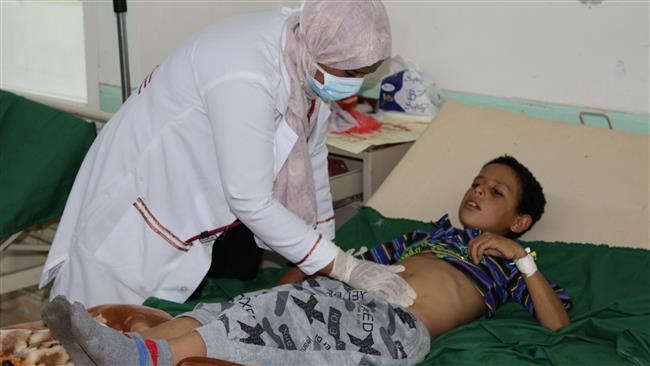
RNA - Saudi fighter jets conducted a series of aerial assaults against an outdoor market in the al-Garrahi district of Yemen's western coastal province of Hudaydah on Monday, leaving 20 people dead and eight others injured, an unnamed local source told Arabic-language al-Masirah television network.
Separately, three people lost their lives when Saudi warplanes launched an aerial attack against a highway in the Jabal Ra's district of the same Yemeni province.
The development came just a day after Saudi jets targeted residential buildings in the Ash Shaghadirah district of the northwestern Yemeni province of Hajjah, killing eight civilians and wounding five others.
Saudi military aircraft also struck Midi district in the same Yemeni province. Four civilians were killed and ten others injured in the raids.
Another Yemeni civilian lost life when a Saudi jet hit his motorcycle as he was travelling along a road in the city of Sirwah, which lies about 120 kilometers (75 miles) east of the capital Sana’a.
At least 13,600 people have been killed since the onset of Saudi Arabia’s military campaign against Yemen in 2015. Much of the Arabian Peninsula country's infrastructure, including hospitals, schools and factories, has been reduced to rubble due to the war.
The Saudi-led war has also triggered a deadly cholera epidemic across Yemen.
According to the World Health Organization’s latest count, the cholera outbreak has killed 2,167 people since the end of April and is suspected to have infected 841,906.
On November 26, the United Nations children’s agency (UNICEF) said that more than 11 million children in Yemen were in acute need of aid, stressing that it was estimated that every 10 minutes a child died of a preventable disease there.
Additionally, the UN has described the current level of hunger in Yemen as “unprecedented,” emphasizing that 17 million people are now food insecure in the country.
It added that 6.8 million, meaning almost one in four people, do not have enough food and rely entirely on external assistance.
A recent survey showed that almost one-third of families had gaps in their diets and hardly ever consumed foods like pulses, vegetables, fruit, dairy products or meat.
More than three million pregnant and nursing women and children under the age of five also need support to prevent or cure malnutrition.
847/940